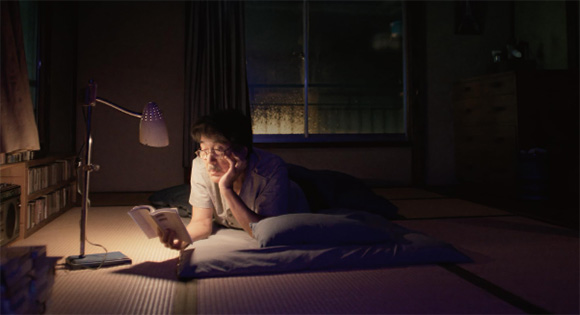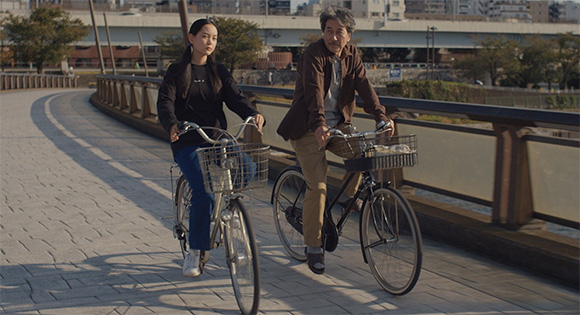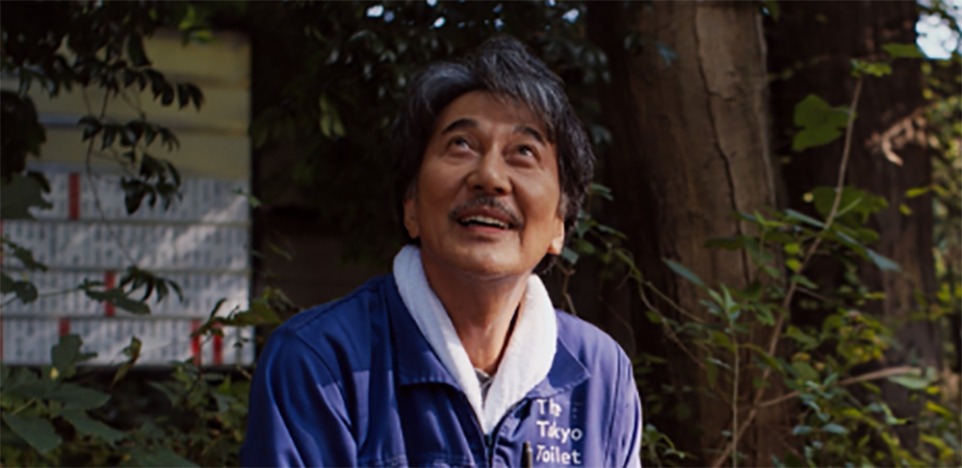“Just a perfect day
Drink Sangria in the park
Then later, when it gets dark
We go home“Just a perfect day
Feed animals in the zoo,
Then later, a movie too
And then home“Oh, it's such a perfect day
I'm glad I spent it with you
Oh just a perfect day
You just keep me hanging on
You just keep me hanging on”
— “Perfect Day” by Lou Reed
What would a perfect day be like for you? Would you go on an adventure? Would you spend it with a special person? Would you be at work or at home? Would you do something new or things you always do?
This is the question at the heart of Perfect Days, a drama directed by German filmmaker Wim Wenders (Wings of Desire) from a script written by Wenders and Takuma Takasaki. The film competed at the 2023 Cannes Film Festival where it won the Prize of the Ecumenical Jury (the film that best touches the spiritual dimension of our existence) and the Best Actor Award for Koji Kakusho’s luminous performance. It has been nominated for Best International Film in the 2024 Academy Awards.
As the world opened up again after the pandemic, Wenders was invited to Japan to see the Tokyo Toilet Project, in which Japanese public toilets were redesigned in 17 locations with the help of 16 creators invited from around the world. The producers envisioned that Wenders would make a short film about each facility. But he saw something else in the project – an opportunity to tell the story of one of the employees, usually unseen and unacknowledged, who work in public spaces.

His focus in the resulting drama is Hirayama (Koji Yakusho), a cleaner of public toilets. His 14 “perfect days” are filled with simple routines. Upon awakening, he folds up his bed and puts it away. He brushes his teeth, trims his mustache, shaves, washes his face, and mists his plants. He dresses in a jumpsuit with The Tokyo Toilet on the back. Opening the door from his small apartment, he smiles at the sky. Then he gets some coffee from a dispenser. In his equipment-laden van, he plays a cassette music tape.
During his shift at several toilets, his work is meticulous. He washes down all the fixtures and uses a little mirror to check that he has gotten any dirt from under the toilet. If someone comes in, he steps out and patiently waits for them to finish.
At lunchtime, he goes to a park where he takes a picture of the sparkling leaves of a favorite tree. Later, we learn he has boxes of these pictures, all labeled by year. He finds a small sapling and digs it up to add to his plant collection at home. He acknowledges a homeless man hugging trees.
After work he rides his bike to a bathhouse. After that respite, he goes to a favorite restaurant for dinner. At home he reads before falling asleep.
“Someone once asked His Holiness the Dalai Lama, ‘If you only had one word to describe the secret of happiness, and of living a fulfilling and meaningful life, what would that be?’ Without hesitating the Dalai Lama replied, ‘Routines.’ ”
— Marc Lesser in Less
Days are separated from other days by a sequence of abstract dream images, capturing key moments he has just experienced. (These were created by Donata Wenders.)
Most days Hirayama has to deal with a young and irresponsible colleague (Tokio Emoto) who wants him to sell his cassettes so he can have the money to woo a girl (Aoi Yamada). She is more interested in his tape of Patti Smith’s music than the boy. One day he visits a shrine. Another day he goes to a second-hand bookstore to add to his large collection of paperbacks.
“Enjoy the little things, for one day you may look back and realize they were the big things.”
— Robert Brault, American writer
Hirayama’s routine changes when his niece Niko (Arisa Nakano) shows up; the teenager has run away from home. She goes to work with him and confides some of her feelings. Riding their bikes over a bridge, he reminds her that “Next time is next time. Now is now.” She makes the phrases into a chant.

That chant captures a lot about Hirayama. He is all about being present. With his small Buddha-like smile, he acknowledged everything around him – his plants, the sky, the trees, the traffic, the patrons of the toilets, a little boy who is lost in the park, acquaintances at a restaurant, his books. We learn from an end-card on the film, that when he takes his tree pictures, he capturing “Komorebi, the shimmering of light and shadow that is created by leaves swaying in the wind. It only exists once, at that moment.”
“The way of the small instructs us to own our smallness by keeping our eyes on the stars but our feet on the ground.”
— Michael Gellert in The Way of the Small
In other ways as well, Hirayama is an exemplar of everyday spirituality, especially in the many ways he focuses on the small and little things that give life meaning. He pays attention to the details of his cleaning work, his plants, and his apartment. Everything has its place. He appreciates beauty, especially in the trees, but also in the melodies and lyrics of the music he loves. He is kind. Finding a little boy in one of the toilets, he takes him to his mother. At the bathhouse on a hot day, he fans an old man sleeping in the waiting room. He clearly loves his niece and, despite being a man of few words, he enjoys her company. He nurtures himself with music and books and Niko by listening to her concerns. And he plays. He plays tic-tac-toe with an anonymous visitor to one of the toilets. He meets a man with cancer and they engage in a game of Shadow Tag.
Compared to “action movies” or “relationship trauma” films, not much happens in “Perfect Days.” And that is just perfect. In the last few minutes, Hirayama is driving to his first job of the day. Nina Simone’s “Feeling Good” is playing from the tape deck. In an acting tour de force that invites your own participation, the camera focuses on his face and the many emotions he is feeling. “It’s a new dawn” . . . yes . . . “It’s a new day” . . . yes . . . “It’s a new life for me” . . . yes . . . “And I’m feeling good” . . . YES!
Try a spiritual practice with chores.
